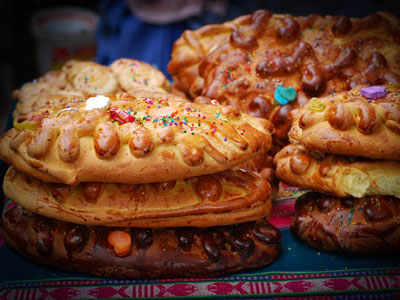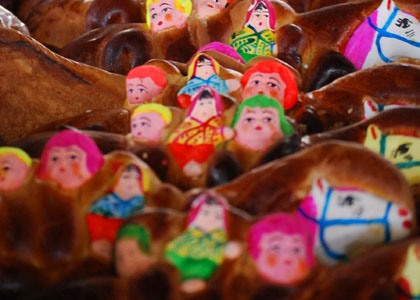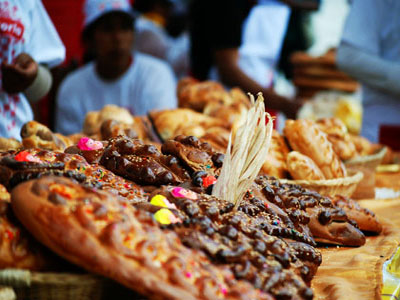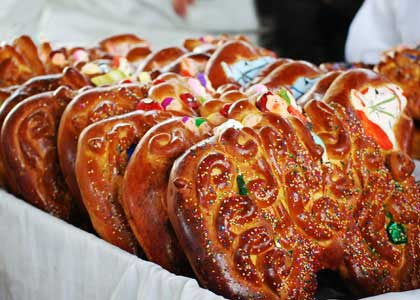



T'anta Wawas & Day of the Dead in Peru
T'anta wawas, sweet wheat bread rolls shaped and decorated in the form of a baby, are omnipresent in November in Peru. Once part of pre-Columbian ancestral rites, they are gifted to friends and relatives, left as offerings in cemeteries, and enjoyed by all on Day of the Dead...
Like other mainly Catholic countries, Peru celebrates All Saints’ Day on November 1st. The following day is Day of the Dead. On November 1st, most Peruvian families will prepare a feast at home, choosing symbolically important foods such as grapes. Candles are lit before the photos of loved ones who have passed away, and food and drink are offered to them.
On Nov 2nd, they visit the graves of loved ones, laden with offerings of much of the same food and drink, this time to be enjoyed all together. It’s a link back to the time of the Inca empire, when the mummies of a family’s ancestors were prominently displayed and received offerings on special occasions.
As can be expected in Latin America, it’s a festive rather than solemn affair. The cemeteries fill not only with families remembering loved ones who have passed on, but also vendors hawking traditional foods and breads, flowers, and toys, and musicians offering their services.
The product most associated with November in Peru is t'anta wawa, a sweet wheat bread roll shaped and decorated in the form of a baby. Once a part of pre-Columbian ancestral rites, they are consumed on Day of the Dead in November throughout the Andes. Baked in clay ovens, in fires fed by eucalyptus branches, they are often adorned with sesame seeds, candies, raisins, and sometimes with small masks.
There are other common forms as well, each of which communicates a message to the Pachamama (the mother earth deity): horses and ladders are for transporting spirits to the afterworld, crowns, and the older, black figures called achachis. In some regions, the form dictates to whom the bread is given- horses are for godfathers and the babies are for godmothers. Flat, sprinkle-covered pastries called empanadas are also popular (and not to be confused with the meat pies of the same name)
Cusco has been sponsoring a t’anta wawa fair during the first week of November for the last several years. It takes place in San Francisco Plaza (two blocks from the city's main square, where Pirwa Restaurant is located) and Wanchaq. The colorful breads and pastries are stacked high, alongside stands offering other traditional fare: spit-roasted pork and tamales. One giant t’anta wawa is constructed each year as well. This symbol of pre-Columbian beliefs is submitted to a mock-baptism before being broken apart into pieces and offered to fair-goers. Constructing the largest Tanta Wawa has become something of a competition among different cities and town in Peru, adding new traditions to the old.
Fecha de Publicación: 22/10/2014

